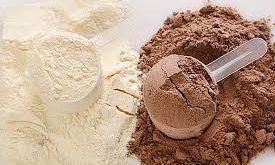Article by Soumita Biswas, Chief Nutritionist, Aster RV Hospital
The fact is that most individuals wish to reduce weight as rapidly as possible and we live in a culture where fast satisfaction and instant results are anticipated. Fad diets are diet regimens that promise significant weight loss in a short amount of time. They are increasingly popular among the younger generation, who are searching for a quick fix to lose weight and meet society’s beauty standards. These diet regimens have gained a lot of popularity as a result of the fact that some celebrities swear by them. A fad diet can be a short-term, instant approach to losing weight, but doing it repeatedly might actually lead to weight gain. Weight reduction can be achieved by following any diet that involves consuming fewer calories than you burn.
Some of the other tempting reasons why individuals choose fad diets are that people nowadays want to lose weight as quickly as possible and with as little effort as feasible and precisely fad diets promise that. Fad diets consist of simple foods that are easy to get, do not include complicated cuisine, and are simple enough for anybody to follow. Most fad diets include a variety of meals and recipes that are really tasty, gratifying a person’s taste buds while also helping in weight reduction.
The majority of fad diets work by limiting your overall calorie consumption. This frequently entails eliminating whole food categories, which might result in a nutritionally imbalanced diet. To lose weight, you must ensure that you are not ingesting an excessive amount of energy. Fad diets limit protein consumption and also dehydrate the human body. As a result, not only will people lose weight, but they may also become quite unwell.
Few pointers to help you stay on track:
· Begin a daily food journal to keep track of what you eat and to assist you in making better food choices.
· Plan and prepare meals—including snacks—every day to prevent eating junk food when you’re hungry.
· Begin the day with a full breakfast.
· Fill half of your plate with vegetables/salad and the other half with protein and carbohydrates.
· Instead of frying or roasting, try boiling, steaming, grilling, poaching, or microwaving your food.
· It is best to exercise every day for at least 30 minutes.
· Once in a while you can treat yourself to some favourite snack.
· Better not to miss meals as you’ll feel weary, hungry, and perhaps experience headaches.
· It is better to limit alcohol consumption as it contains a lot of calories.
· Finally, remember to obtain medical counsel before beginning a diet if you have diabetes, high blood pressure, or other medical concerns.
Being a part of a trend can make almost anyone try to follow it, but one should always remember that food is absolutely essential for the human body to function and eating right is imperative to a healthy lifestyle. Consult your nutritionist before beginning a weight-loss programme. They can go through any medical conditions or drugs you’re taking that might be affecting your weight and recommend a programme for you.
 Newspatrolling.com News cum Content Syndication Portal Online
Newspatrolling.com News cum Content Syndication Portal Online






